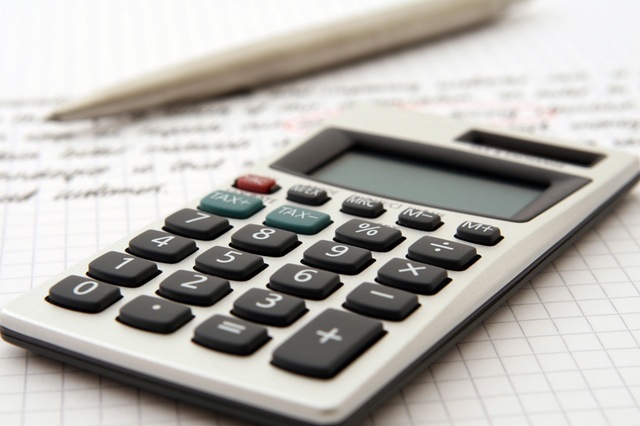Taxes.
Even just mention of it already evokes a feeling of dread. No one wants their hard-earned money taken away from them. If you are an employee, the sight of tax deductions in your payslip is a constant disheartening experience. But for those few who do not derive their income from employment, you might wonder whether you are also required to suffer the same torture.
Are writers, bloggers, designers, and other so-called freelancers required to pay taxes?
Unfortunately, the answer is yes.
So-called professionals must also pay taxes as mandated by the Tax Code. Under the law, a “professional” not only refers to lawyers, doctors, and accountants but also to “one who pursues an art and makes his living therefrom.” The Bureau of Internal Revenue (BIR) further defines a professional as a self-employed individual (or a group) practicing his profession or calling, with or without license under a regulatory board or body. This means that freelancers such as writers, bloggers, and designers are covered.

Why should I pay professional taxes?
If you are currently enjoying your income without the burden of taxes, you might ask what’s in it for you. What is the incentive? Well, your primary motivator for paying your taxes should be avoiding jail time. Nonpayment of taxes constitutes as tax evasion which is a crime punishable with imprisonment under the Tax Code.
But other than that, paying your professional taxes can also be a big help when you borrow money from banks, lending companies, and other credit institutions. Your annual income tax return can be used as proof of your earnings when you apply for loans.
Is there really no way out of this?
The only instance that a professional or freelancer like you need not pay taxes is when your gross income does not exceed your total personal and additional exemptions. All individuals are entitled to a P50,000 personal exemption from their taxable gross annual income.
The other exemption depends on the number of dependents under your care. You are allowed an additional P25,000 exemption for every dependent you have for a maximum total of P100,000. A dependent is defined as a child of the taxpayer (whether adopted, legitimate, or illegitimate) who is under 21 years old, unemployed, lives with the taxpayer and depends on him for support.
So if you have three children, your tax exemptions include your P50,000 personal exemption and an additional P75,000 exemption for a total of P125,000. In this example, if the taxpayer earns less than that in a year, he does not need to pay any taxes.

How do I pay?
The BIR’s Tax Guide for Professionals provides a detailed step-by-step guide on how to go about your taxes. We will try to simplify and narrow it down here. First step is to register with the BIR:
- 1. Prepare the necessary documents. The most important of which is your birth certificate or any document which shows your name, address, and birthdate. If applicable, the following must also be presented: Mayor’s Permit, DTI Certificate of Business Name, Professional Regulation Commission ID, and Payment of Professional Tax Receipt (PTR).
- 2. Fill up BIR Form 1901 (Application for Registration) and submit it to the Revenue District Officer (RDO) in charge of your place of business
- 3. Pay P500.00 as registration fee (using BIR Form 0605) to any Authorized Agent Bank (AAB) within the RDO
- 4. Attend the required taxpayer’s briefing at the RDO
- 5. Use BIR Form No. 1906 to apply for Official Receipts/Sales Invoice
- 6. Register your books of accounts and get them stamped by the RDO
- 7. If needed, use BIR Form No. 1905 to update your registration information

When you have already registered, then it is time to pay your taxes. One thing interesting to note about our country’s income tax system is that it is, in a way, somehow voluntary. You declare your own income and compute the payable tax amount yourself, then pay for it.
But take note that this does not give you the unbridled freedom to just declare and pay any amount you like. It must be based on documentary proof and evidence. Misrepresenting your income statement constitutes tax fraud and is punishable under the law with fines and imprisonment. To avoid that, you must follow these steps:
- 1. Pay the P500 annual registration fee on or before the last day of January after the initial registration.
- 2. Compute the taxes due.
- 3. Proceed to pay the amount in any AAB within the RDO where you are registered. If there is no AAB, you can pay it to a Revenue Collection Officer (RCO) or duly Authorized City or Municipal Treasurer. eFiling and ePayment can also be made with the BIR’s Electronic Filing and Payment System (eFPS).
a. First, subtract your exemptions and other allowable deductions from your gross annual income to determine your taxable income.
For deductions, you are allowed to use either of the two methods: optional standard deduction which is a flat 40% deduction from your gross income or an itemized deduction which takes into account all the deductible expenses you incurred in the year.
The first method requires less work as you don’t have to submit financial statements. On the other hand, an itemized deduction needs a lot of paperwork since you will need to submit receipts and other documentary proof to prove all the allowable deductions. But depending on the situation, one method may be more advantageous than the other. You will have to calculate it yourself to determine which method is best for you.
As a general rule, use an itemized deduction scheme if the total deductible expenses you incurred during a taxable year is more than 40% of your gross income. Otherwise, an optional standard deduction is better.
b. Next, determine your tax rate. This will vary depending on your taxable income after computation of exemptions and deductions. The tax rate is a flat amount plus a rate of 5% to 32% of the excess. For example, if your net taxable income is P170,000 you are under the P140,000-P250,000 bracket and your applicable tax rate is P22,500 + 25% of the excess over P140,000.
c. Finally, compute the tax rate based on your taxable income. The result is the tax amount you need to pay.
(Note: For a more detailed discussion on how to correctly do the computations and a list of other taxes you may have to pay, check out the BIR’s Tax Guide for Professionals)
Other requirements
Aside from this, you are also required to keep books of account which you are mandated to preserve for 3 years. If you quarterly revenue exceeds P150,000, the books needs to be audited and examined by a Certified Public Accountant (CPA). Lastly, all professionals are mandated to issue receipts for every payment made by a customer. The said receipt must state your name or the business style, your TIN, your business address and it must be serially numbered.







